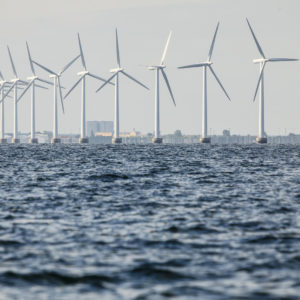Editor’s Note: For an alternative viewpoint, please see: Counterpoint: All-of-the-Above Approach Is Best for Environmental Progress and Energy Security
Can clean energy replace fossil fuels? It’s already happening.
The truth is, just as computers replaced typewriters and cellphones replaced landlines, modern clean energy will replace outdated fossil fuels — it’s just a matter of how quickly. And that’s because people around the country are starting to see that the transition from dirty fossil fuels like coal, oil, and gas to clean energy is best viewed not as an obligation but as an opportunity.
We’re all familiar with the problems that should motivate us to move beyond dirty fuels: air pollution and asthma, water pollution, climate instability, volatile prices, and reliance on overseas oil sources. What many people are only just beginning to see, however, are the tremendous economic benefits that come from transitioning to clean energy.
The easiest place to see those benefits is in the cities that have already committed to powering themselves with 100% clean energy. That’s right: all of the energy needed to power homes, businesses, and schools can come from clean sources. From small towns like Greensburg, Kansas to major cities like San Diego, mayors and city leaders are announcing plans to go all in on clean energy. In fact, 15 cities across the country have already taken the pledge to move toward 100% clean energy, along with iconic international cities like Paris, Sydney, and Vancouver. And with solar prices dropping 80% and wind prices down 60% in recent years, cities are moving toward clean energy not just because it’s the right thing to do but also because it saves money.
Don’t just take my word for it. Ask the mayor of Georgetown, Texas, who said, “This was a business decision and it was a no-brainer. This is a long-term source of power that creates cost certainty, brings economic development, uses less water, and helps the environment.” Or the Republican mayor of San Diego, Kevin Faulconer, who announced plans to move the nation’s eighth largest city to 100% clean energy because it supports both “a cleaner community and a stronger economy.”
Clean energy also creates good-paying careers. The solar industry already employs over 200,000 people — more than twice as many as the coal mining industry. Last year, job growth in the solar industry was 12 times greater than in the general economy. A just transition to a modernized, smart power grid could create millions of good careers for people who desperately need them, especially people from economically and environmentally devastated front line communities that have suffered the worst consequences of fossil-fuel pollution.
And it’s not just about the boom in new jobs that we can look forward to, but the economic benefits clean energy can bring to every American family. Stanford scientists studied this issue and concluded that the transition to a clean energy economy would save the average American family over $200 a year in energy costs and $1,500 a year in healthcare costs. It’s no surprise that these clean energy commitments are wildly popular with the public. According to a national survey conducted by the University of Texas at Austin this spring, 90 percent of American adults agree that the government should be focusing on developing renewable energy.
This year, clean energy prices have dropped so fast that in many places around the country it’s now less expensive to power homes and businesses with wind or solar than with coal, oil, or gas. When the cleanest option is also the cheapest option, there’s no longer any reason to keep using the fuels of the past.
We’ve seen that when technology changes in this country, it can happen quickly. Just look at the transition from VHS to DVD to streaming, or from landlines to cellphones to smartphones. When better technologies present themselves, and when prices for those technologies begin to drop, innovators are quick to adapt and seize the better way. And when we’re talking about a change that isn’t just cleaner and healthier but also has the ability to boost our economy in a major way, it’s clear that clean energy is an idea whose time has come.
Whenever a coal or gas plant gets replaced by cleaner, cheaper energy like solar and wind, we are never going back.

